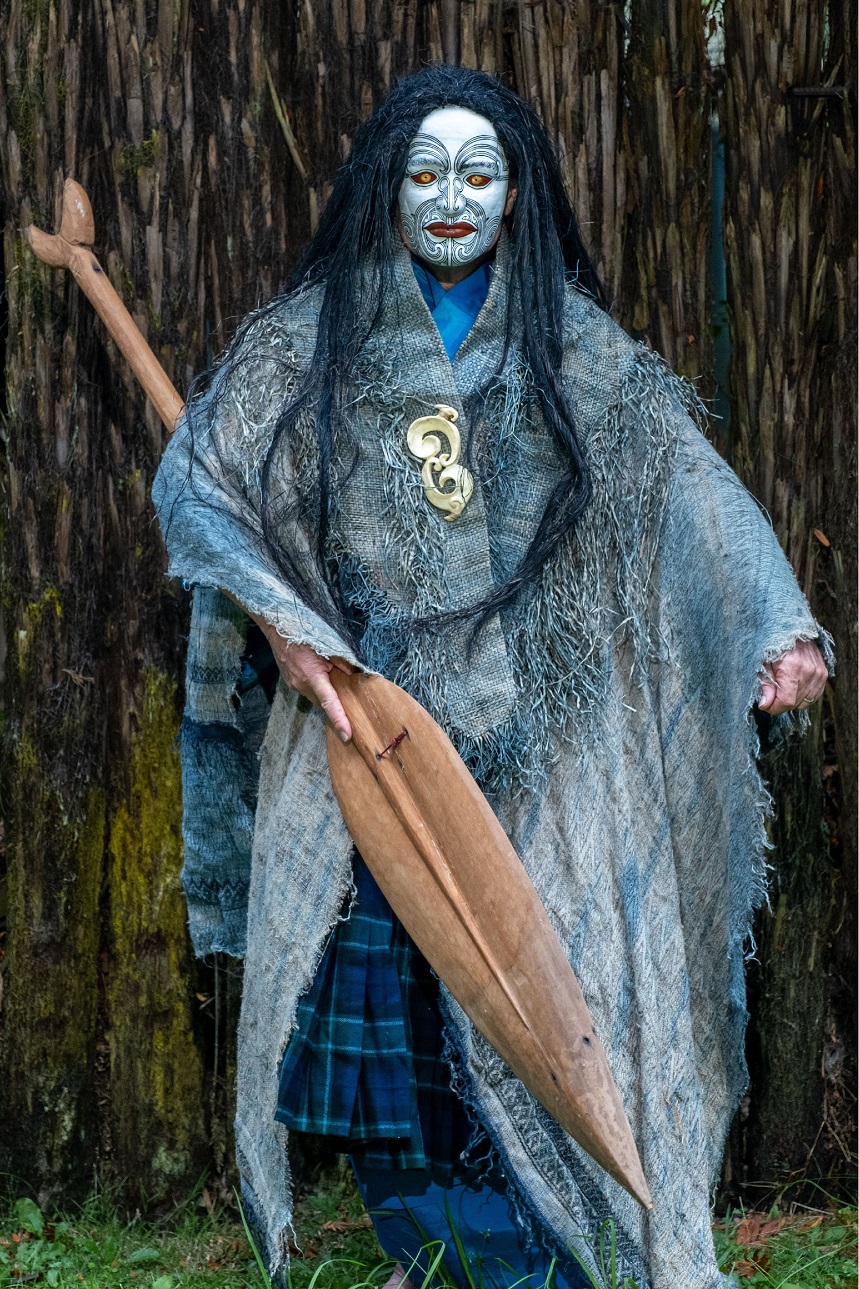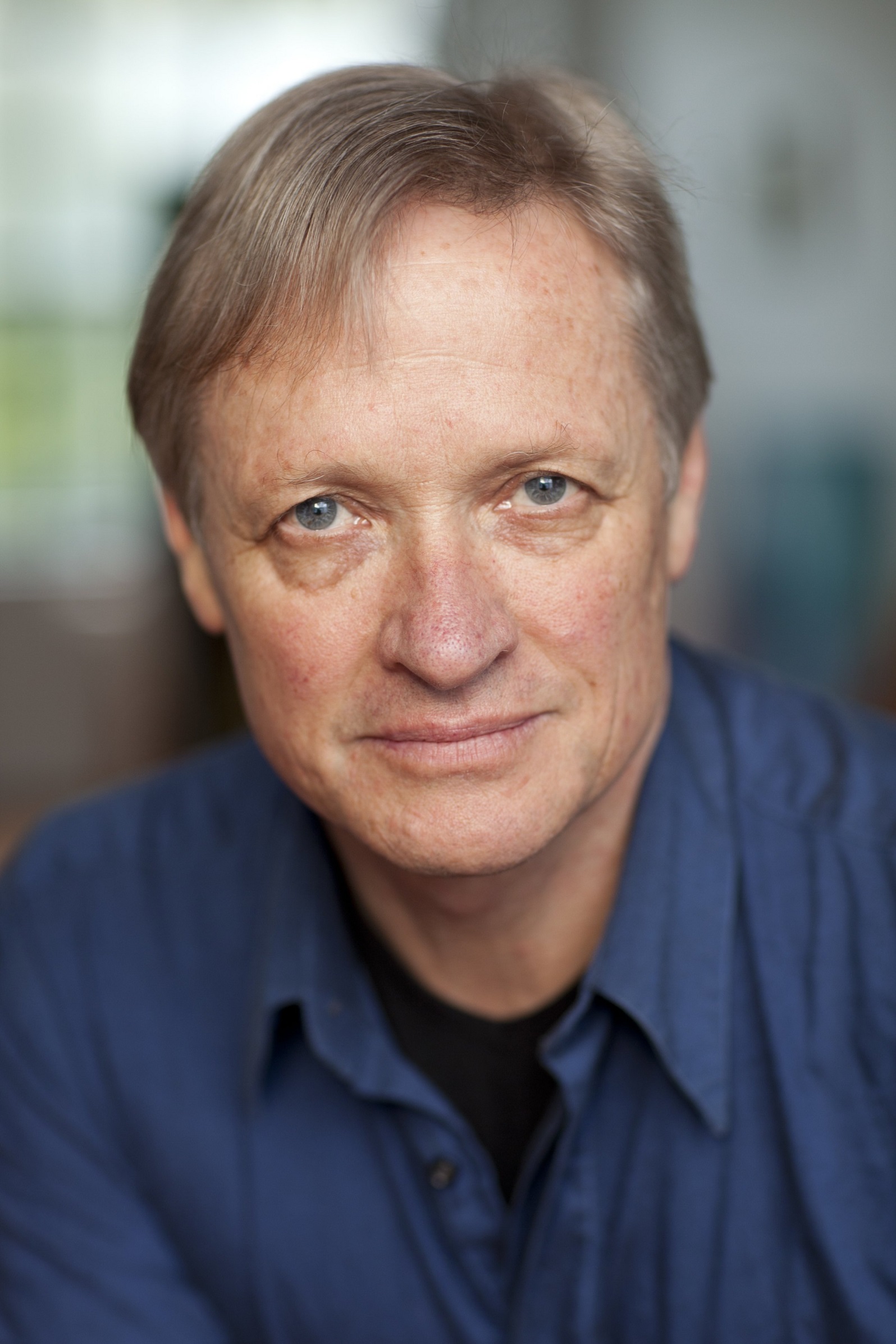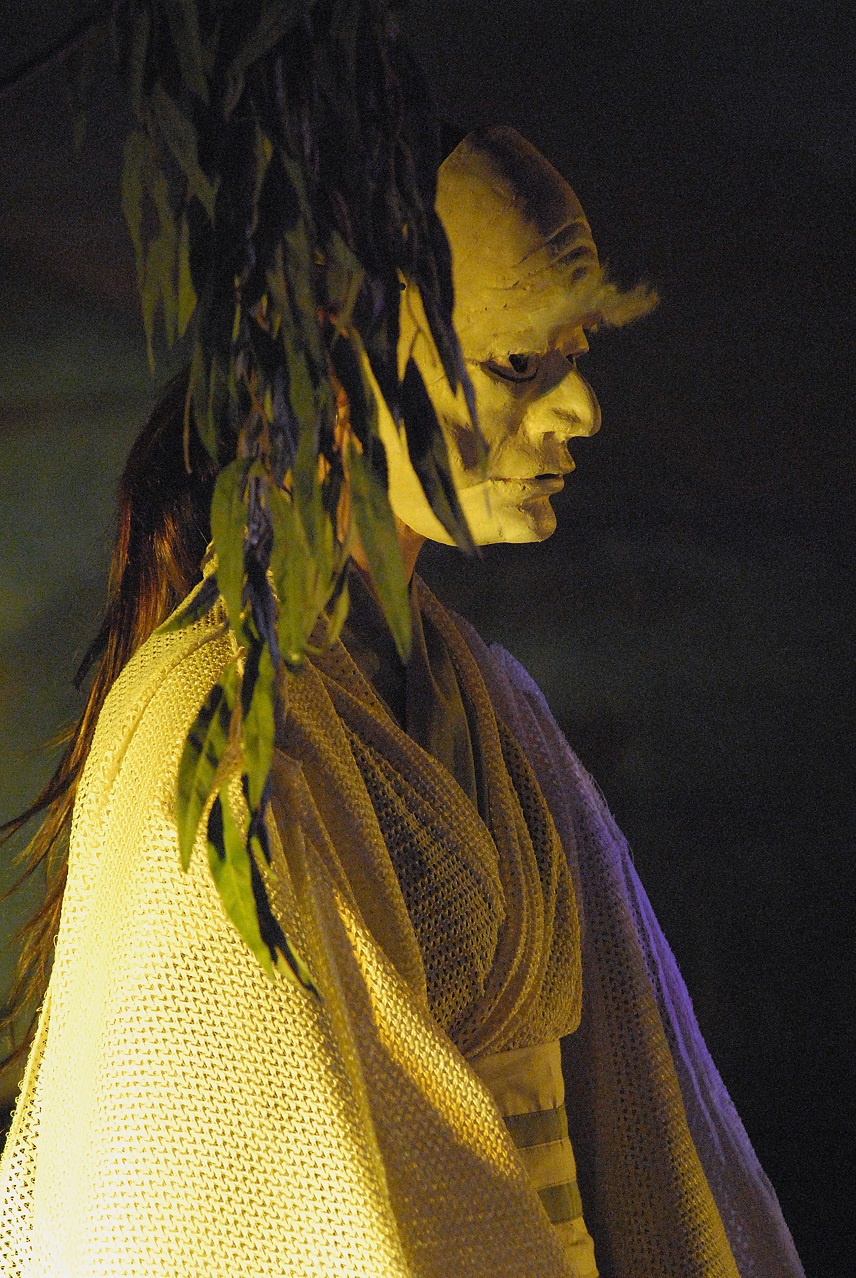
Growing up on a King Country farm, John Davies had no concept of theatre, ballet or opera but he did have an active imagination.
"I’d be out on the land, but in my mind, and in my imagination, I’d be in the wild west of Montana, I’d be in ancient Rome. And I did that for years, and years.
"That in some way is really where it began for me."
But it was not until his late teens when he realised that such things as theatre existed. So at 20 he moved to Christchurch and got a job at the Court Theatre. His first professional gig was as a troupe of four young people performing in Christchurch Square during the 1974 Commonwealth Games.
He still remembers discovering the work of Ancient Greek tragic poet Sophocles one afternoon in the Christchurch Public Library. He read three plays just sitting in the library.
"And I was really struck by the directness of the language, by the simplicity of the poetry, by the huge ideas that were contained within these plays.
"So all these things, just again, [began] to feed in and became my passion and my pursuit. And of course, there are many other people who share this, and I joined with them and, and so my life as a professional, really, began."
Decades later Davies is known for his work not only as an actor but as an academic and opera director. He trained at Toi Whakaari New Zealand Drama School and joined Red Mole Theatre in 1977, travelling and performing with the controversial troupe for 10 years.
"And they were very intense years. I took on board so much during that time of how to create work, how to write, how to choreograph, how to design, how to direct, how to think about a lighting design, sound design, all of that I learned, because we had to do it."
The group, the subject of a movie by Annie Goldson last year, Red Mole: Romance, had a range of ways of performing from a puppet troupe called the White Rabbit puppet theatre to often combining cabaret, political skits, physical theatre and sensationalist fire-blowing acts.
"But then we also created epic theatre productions, avant garde style, you might say, not with an obvious narrative. We worked a lot with masks and outsize images."
It was while living and working in New York with Red Mole that Davies discovered Japanese classical theatre Noh while watching an outdoor performance in Manhattan. Again he headed to the library and this time found Plays of the Noh Theatre: Donald Keen.
Eight months later he was in Kyoto at the Iwakura studio of Noh master Michishige Udaka. He has been to Japan to study the theatre form four times and is the founder of the New Zealand Noh Theatre Company.
Noh theatre has a very specific design to the dramaturgical structure of the play whereby they engineer the opportunity for a spirit from the past to come into the present to end the suffering of the spirit figure.
"So it may be a child that has drowned, or a woman who lives in absolute anguish for the loss of her family or husband, or a range of different circumstances where there’s a kind of a tormented ghost. And these sorts of ideas go back to the origins of theatre, you know, really go back to the dim, dim past before even the Greek theatre."
He returned to New Zealand doing a range of things before finding his way into teaching at a various universities including Unitech, where he was curriculum leader for nine years, and Waikato University.

"And I suddenly thought I’m in the room with Mozart. This is extraordinary. So I began to listen and to study opera. Then I got a job as an assistant director for the National Opera Company and New Zealand Opera Company. And then it kind of grew from there."
Davies began to collaborate with colleagues who compose opera.
"I would write a libretto or I would adapt a libretto from an existing story. And then they would compose and then I would direct them on stage. A number of those works had enormous success."
His work with Michael Williams, The Juniper Passion, set in the Battle of Monte Cassino, was invited to Italy and premiered at an ancient Roman amphitheatre on the slopes of Monte Cassino in 2013.
"So opera became a real excitement for me. Nothing beats it, nothing tops it. Opera has become a real passion. And I continue to be involved.
"It’s an intensely collaborative art. But to be a director of an opera is an extraordinary privilege and something that is really thrilling and very challenging."
Alongside his passions for opera and Noh theatre, Davies also has a love of history, especially New Zealand history.
When he was studying for his master’s degree in 2000, he researched the notion of Romanticism in the time of colonisation in the early 19th century.
"And the more I read about it, the more I became fascinated with how those ideas had kind of seeped into the colonial story and become part of the sort of the origins of the European settlers of these islands, which really began in the early years of the 19th century."
After completing his studies he continued reading about the history of Aotearoa from historians such as Dame Anne Salmond, Prof James Belich and Dr Trevor Bently.
"I find it a fascinating story. And I began to come across many more of these references of men and women who had lived here in the early years of the 19th century, and lived as Māori. Their lives were dangerous but they were also filled with extraordinary stories of loyalty and marriage and children and families. Stories of pakeha men belonging, as it were, or adopted by different iwi facing each other on the battlefield."
Davies began to wonder if it would be possible to tell these stories in theatre form using techniques from Noh theatre — combining his two loves.
"I began to kind of weave together a way that I could possibly find one of these people and bring them to the present and have them tell their story. So that was my plan."
To make it work, he realised he needed to create a fictional figure to carry the story so he created a fictional ancestor.
"So he’s my ancestor, but he’s a conglomeration of some of my actual ancestors, and figures that I have read about."
He began to draw together the concepts of Noh theatre and the idea of who these early settlers were.

While Davies has been involved in large productions in the past, he decided to keep this one simple.
"I want to strip everything right back and find the essence of something, and really find my way inside that. So it was always going to be a solo performance."
To do that he plays different characters, and uses different voices to convey the story as his ancestor becomes struck by the depths of his depravity.
"It’s a fairly sort of straightforward approach, if you like, but it’s got this aspect to it, that I bring in from the Noh theatre of the spirit of the past coming into the present. And they’re there to confront what is causing the suffering."
As a solo piece it means Davis, in his many characters, carries the show and he has found it requires some new techniques to drive the action forward.
"Sometimes it’s become a very kind of almost scientific and craft-like, in order to be able to present the dialogue as sort of authentic, dramatic dialogue. "
There is also the other challenges of different locations, because the play takes place in many different places. So he relies on the audience’s imagination to take them to those locations as he describes them.
"They have a creative experience. And that can be really satisfying. And that’s one of the reactions. People will come out of the performance going ‘well, I went on the journey, I watched every event take place in my own imagination’, because the actions and the words that I was using, prompted and opened up that and that’s really my task.
"If I can open the imagination of the audience, it’s like reading a novel: you’re just sitting in your chair with the words in front of you but in your mind, you are on the deck of the ship, or whatever it might be. It’s the same sort of experience but it’s being done in the collective, being done together in the space, being guided and driven by the one figure on the stage."
It is not an easy task and he has found rehearsal quite tough at times without other cast and crew members to jolly him along when he is not energised.
"It’s quite, quite challenging. Some days I’ll go into the rehearsal room and I’ll crack into it and the energy is flowing. Other days I’ll go in and it’s really hard to get going. And it takes an enormous amount of discipline on my part to go, OK, I’m not feeling so energised today, so what I’ll do is I’ll just detail this little moment here."
On this tour he is has 16 performances so he knows it will be important to rest and look after himself.
"I’ve been working in this area for 50 years. So I do have a sense of what what it takes and what it’s like. It’s just part of the craft. It’s part of the skill that you learn as a performer. And touch wood, I make it through the tour.
"I think we’ll be fine. It’s a pretty intense hour and 20 minutes. But the rest of the time basically all I’ll have to do is keep myself well fed, rested. And you know, get ready for the next one."
TO SEE:
Te Tupua-The Goblin, Regent Theatre-Clarkson Studio, May 18.












